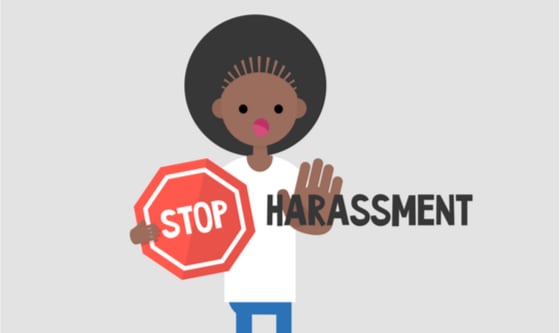
Dealing with harassment at work: do’s and don’ts
You’ve been looking forward to your new job. But your colleague starts harassing you the day you started and now you are dreading going to work.
This happens to lots of young people who have just started working. Harassment can be everything from unwanted sexual remarks and people touching you to emotional abuse or blackmail. It can be tough to figure out what to do in a situation like this, so we have put together some do’s and don’ts to help you deal with the harassment.
Say ‘no’
The first thing to do is to say ‘no’. That can be hard, especially if the harasser is a superior and you feel like you need to be polite. But don’t be lured into thinking that they will just stop. If you don’t say anything, chances are they will just keep going with whatever they are doing to harass you.
Considering doing this in writing, as this will also, in legal terms, ‘establish a line of misconduct’. It means that you have made it clear that you are not comfortable with what is happening which is important should the person not stop and you have to take legal action.Collect evidence
Unfortunately, many people to have experienced harassment aren’t taken seriously. That’s why it’s important to keep any evidence of the harassment. If the person is sending you inappropriate messages, photos, or e-mails, don’t delete them. Anything that supports your case might be helpful along the way.
Keep that in mind – because it might feel easier to just delete and erase the memory of things that are unpleasant, offensive, or violent.
Avoid situations where you could be harassed
Try to avoid being alone with the harasser, for example. Block them from social media and don’t talk to them after work. Try to have people around whenever you need to meet the harasser and interact in writing as much as possible.
This will protect you, at least partly, but it won’t stop the problem.
Don’t think it’s your fault
Never let anybody tell you that the harassment is your fault.
It’s not about the way you dress, the way you speak, or an extra glass of wine at the office party. Harassment is always the fault of the person harassing someone. They are the ones who disrespect and harass you – don’t let anybody tell you otherwise.
Don’t shy away from official complaints
It might be really intimidating to reach out to someone from HR, or a superior, to put in an official complaint. But it needs to be done: if the person harassing you doesn’t react to your ‘no’ and continues doing what they are doing, the only way to stop them will be the official road.
There is a chance that whoever you are reporting the incident(s) to won’t believe you or make excuses on the perpetrator’s behalf. In that case, go to someone else.Don’t be afraid to seek help
Harassment can be very damaging and affect your mental health and self-esteem. Don’t be afraid to seek help from a professional to deal with what is happening to you. Don’t feel the need to keep things to yourself. Even just talking to a trusted friend or family member might make it easier to deal with the harassment.
Do you need to talk to one of our discussion board moderators about your harassment experience? Don’t hesitate to reach out.
